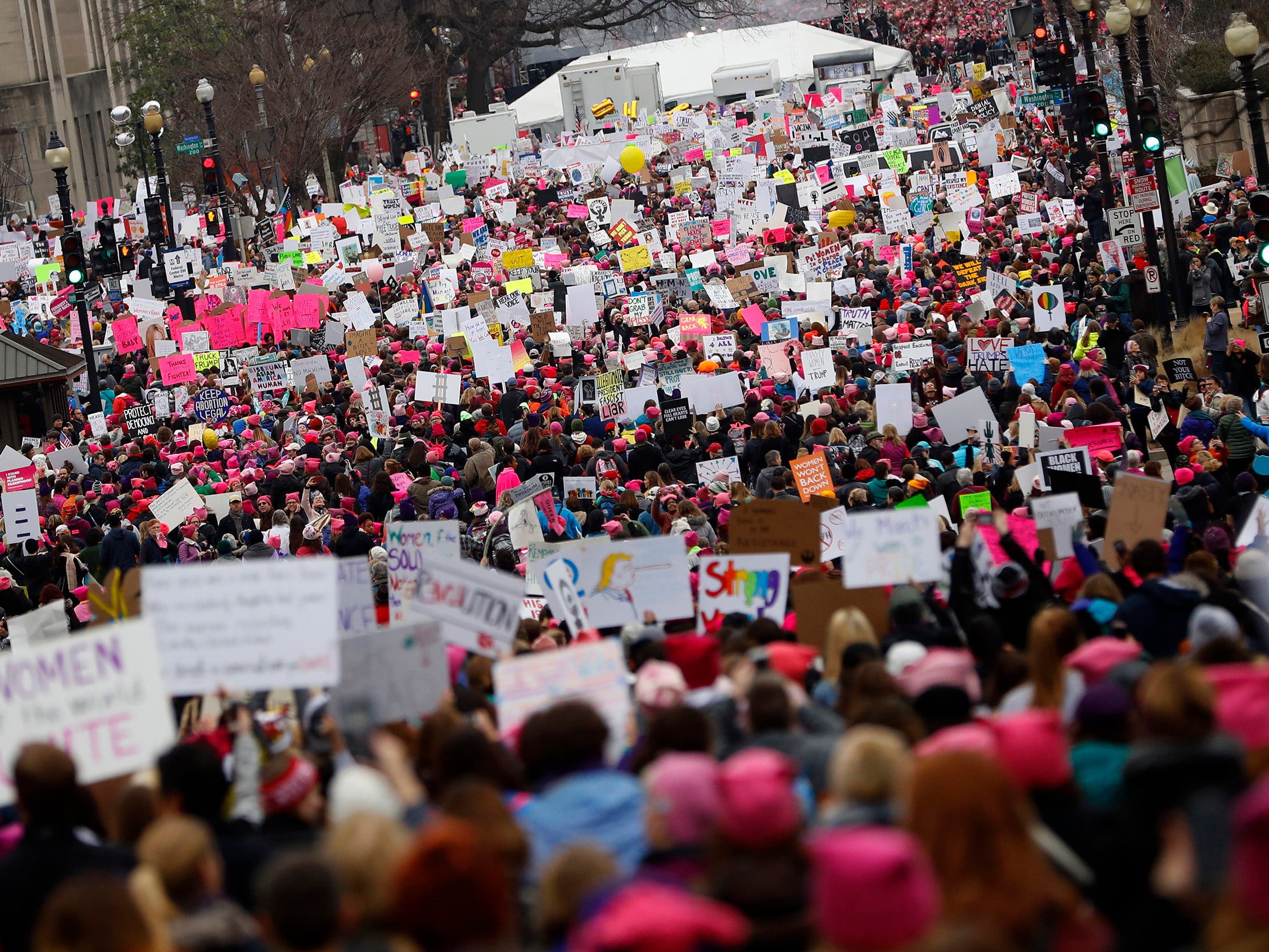Women's March: British and Canadian anti-Trump protesters denied entry to US by border guards
'They took my phone and started going through my texts. They searched the car and then they asked the driver if he practised Islam and if he spoke Arabic.'

Your support helps us to tell the story
From reproductive rights to climate change to Big Tech, The Independent is on the ground when the story is developing. Whether it's investigating the financials of Elon Musk's pro-Trump PAC or producing our latest documentary, 'The A Word', which shines a light on the American women fighting for reproductive rights, we know how important it is to parse out the facts from the messaging.
At such a critical moment in US history, we need reporters on the ground. Your donation allows us to keep sending journalists to speak to both sides of the story.
The Independent is trusted by Americans across the entire political spectrum. And unlike many other quality news outlets, we choose not to lock Americans out of our reporting and analysis with paywalls. We believe quality journalism should be available to everyone, paid for by those who can afford it.
Your support makes all the difference.Canadian and British protesters heading to the Women’s March in Washington have been denied entry to the United States.
Joe Kroese, a British man studying in Montreal, told the Independent he was refused entry into the country after a border agent told him he was planning to attend a “potentially violent rally”.
There were reports of other groups of would-be protesters being denied entry into the US at a land crossing in Quebec after being searched, fingerprinted and photographed.
Mr Kroese, originally from Newcastle and studying at McGill University, said he was questioned by security staff for three hours at the border.
The 23-year-old was travelling with a Canadian and two US nationals and the group had planned to go to the Women’s March in Washington after a short stop in New York.
Mr Kroese and his Canadian friend were refused entry, fingerprinted and photographed before being advised not to travel to the US for several months. They were also told they would need a visa the next time they came.
“They took my phone and started going through my texts. There was another group of Canadians there that were also going to the march and were being refused entry," he said.
"They searched the car and then they asked the driver if he practised Islam and if he spoke Arabic. They wanted to spook us a bit. It felt like a kind of intimidation."
Montrealer Joseph Decunha was also turned away for “administrative reasons” after he told a border agent he planned to go to the inauguration and the Women’s March in Washington.
"The first thing he asked us point blank is, 'Are you anti- or pro-Trump? It felt like, if we had been pro-Trump, we would have absolutely been allowed entry,” he told the Canadian Broadcasting Corporation.
Border agents told him that if he tried again to enter the US this weekend, he would be refused.
Sasha Dyck, of Montreal, reported a similar experience to the Guardian.
She had arranged to travel with a group of eight, including six Canadians and two French people to Washington for the march.
But when the group arrived at the border crossing and told the border agents about their plans, their cars were pulled over to the side and searched, their mobiles phones examined and each member of the group was fingerprinted and had their photo taken.
The two French citizens were denied entry and also informed that there would need a visa for any future visit to the US.
The rest of the group was told to “head home” and that if they tried to cross the border again during the weekend, they would be arrested, Ms Dyck told the Guardian.
The Independent has contacted the US Customs and Border Protection for comment.
Join our commenting forum
Join thought-provoking conversations, follow other Independent readers and see their replies
Comments